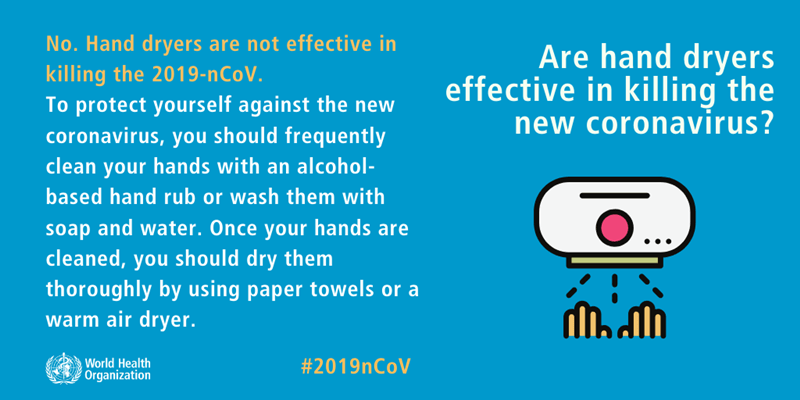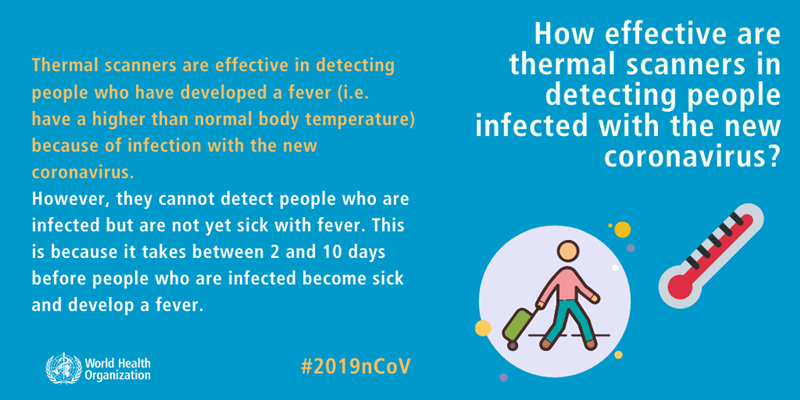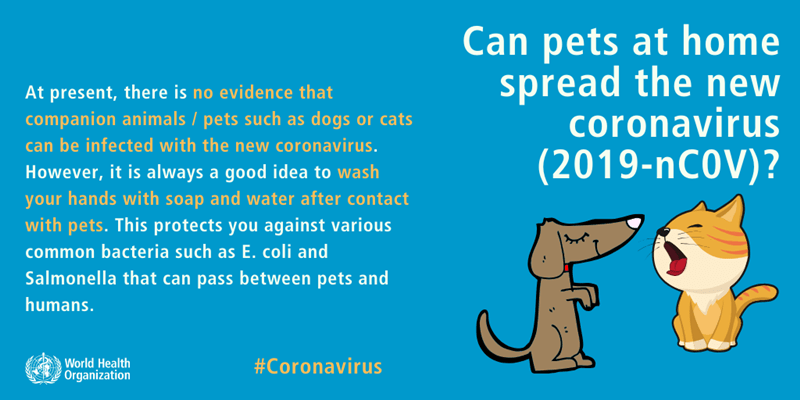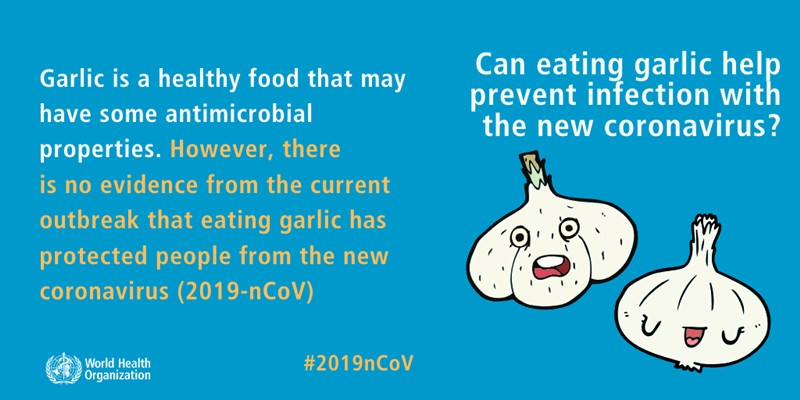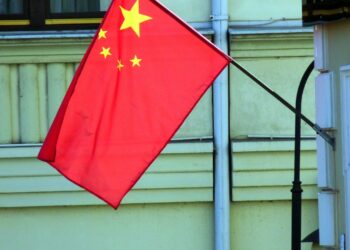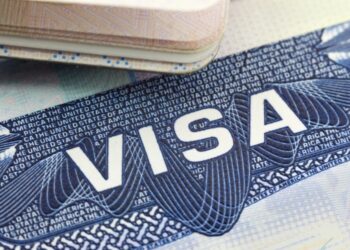As the deadly virus is spreading globally and causing havoc, coronavirus myths circulating for prevention may cause more problems due to misinformation.
The World Health Organization (WHO) has issued Myth busters as a Coronavirus disease (COVID-19) advice for the public.
With increased panic, false claims, misinformation and conspiracy theories about the disease have started taking its toll.
There are so much misinformation and conspiracy theories floating on digital platforms. which may cause more damage rather than help people.
Coronavirus Myths Busted by WHO
Vitamin C provides protection
Vitamin C does protect you from the common cold, but it does not mean it will protect you from the new deadly COVID-19.
There is no solid proof as yet but the Chinese are currently testing the effect of Vitamin C on coronavirus.
Hand dryers will kill coronavirus

Coronavirus Myth Busters by WHO
READ MORE: Khalil ur Rehman and Marvi Sirmed heated argument on LIVE TV
Rumors have it, using hot air from the hand dryers for 30 seconds will kill the coronavirus.
WHO claims hand dryers will not kill COVID-19. But to prevent the spread wash your hands frequently with an alcohol-based rub or wash them with soap and water. After washing dry hands with paper towels or warm air dryers.
UV disinfection lamp kills the coronavirus
Another myth circulating has been busted by WHO.
WHO urges not to use UV disinfection lamps to sterilize hands or other areas of skin as the radiation may cause skin irritation.
Are thermal scanners effective in detecting the coronavirus

Coronavirus Myth Busters by WHO
The thermal scanner can only detect a higher than normal body temperature.
However, it cannot detect the people who are infected with coronavirus but not who are yet sick with a fever. It takes between 2 to 10 days for people infected to become sick and develop a fever.
Spraying alcohol or chlorine over your body to kill coronavirus.
This is another coronavirus myth that says spraying your body with alcohol or chlorine will kill the virus. This myth has also been debunked by WHO.
WHO states such substances can be harmful to clothes or mucous membranes (eyes, mouth). Alcohol and chlorine can be used to disinfect surfaces, but appropriate recommendations are needed for the use.
Packages from China aren’t safe
There is rising concern over receiving packages and letters from China. WHO says it is safe to receive packages from China. Coronavirus does not survive long on objects.
Pets at home spread coronavirus

Coronavirus Myth Buster by WHO
READ MORE: Weather: Rain expected in Islamabad, parts of Punjab, KP and Sindh
Presently there is no evidence that pets can be infected with the coronavirus. However, it is always a good idea to wash your hands after coming in contact with them.
Pneumonia vaccines can protect
Pneumonia vaccines do not provide protection against COVID-19. Researchers are trying to develop a new vaccine.
Rinsing nose with saline help prevent infection
There is no such evidence that regularly rinsing nose with saline protects from coronavirus. WHO adds regular rinse with saline may help people recover from the common cold but it does not prevent respiratory infection.
Eat garlic to prevent infection from coronavirus

Coronavirus Myth Busters by WHO
Garlic no doubt is healthy food and helps treat the common cold. Eating garlic, however, won’t stop coronavirus infection.
Sesame oil blocks coronavirus from entering the body
WHO warns sesame oil to have no impact on the coronavirus.
Coronavirus affect only older people
The new coronavirus will affect people of all ages. WHO advises people of all ages to take preventive measures.
People with pre-existing medical conditions have shown to be more vulnerable.
Antibiotics are effective in the prevention and treatment of coronavirus
Antibiotics are only effective against bacteria. COVID-19 is a virus and thus antibiotics should not be used. Coronavirus patients who are hospitalized may receive antibiotics for the possibility of bacterial co-infection.
Drinking water every fifteen minutes
Another coronavirus myth circulating is that drinking water every fifteen minutes will flush out the virus. This is however not true and drinking water will not prevent coronavirus.
Shaving facial hair
Shaving facial hair will not protect you from the deadly virus.
Staff at the hospitals are asked to shave beards as it obstructs the mask to get a proper seal to the face.
Mouth wash gargle
No using mouth wash for gargle does not provide any protection. WHO states there is no evidence to prove that.
The virus will be gone by spring
As suggested the heat kills the virus and President Trump suggested the current outbreak will have dissipated by spring.
The public health experts suggest there is no way of knowing it yet.
People who get coronavirus will die
The death rate for the coronavirus is around 2% which is likely to fall. The disease can be fatal but the cases are rare.
You need a mask
US Surgeon General Dr. Jerome Adams suggest face masks actually increase the risk of infection if not worn properly.
People who need to use the mask are those who are infected with the new coronavirus and showing the symptoms.
The others who need the mask are health care workers.
READ MORE ON CORONAVIRUS
Read more: Coronavirus: WHO satisfied by Pakistan response.

